Unedited Nov. 7, 2019 Rivet Magazine interview of Maurice Malone
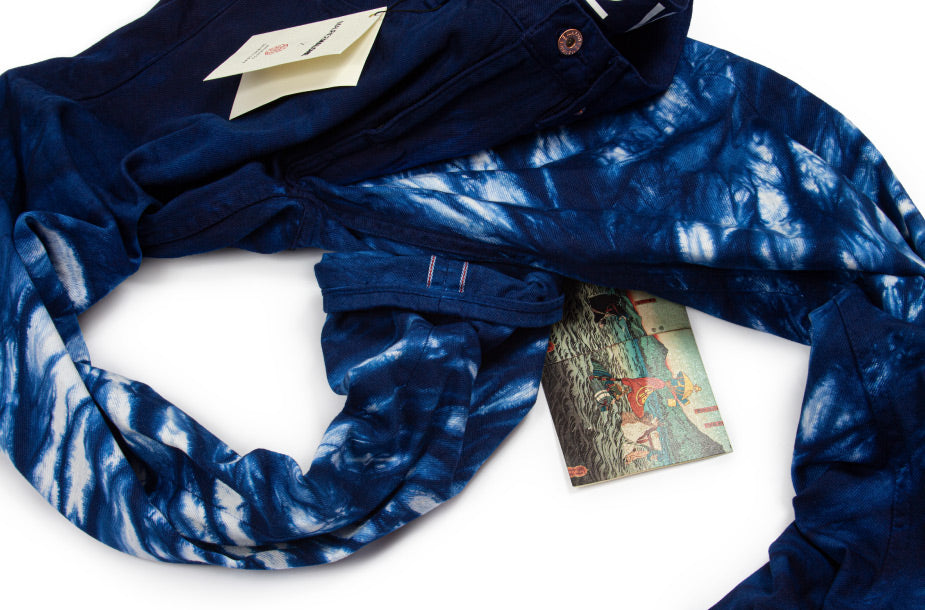
This is the unedited version of the "questions & answers" portion of the interview, written by Angela Velasquez, originally posted on November 7, 2019, in Rivet Magainze on the Sourcing Journal's website. There, you can read their original full-length article titled: This New York Denim Legend is Revisiting His Streetwear Roots. There are fewer questions, but more background in the Rivet article.
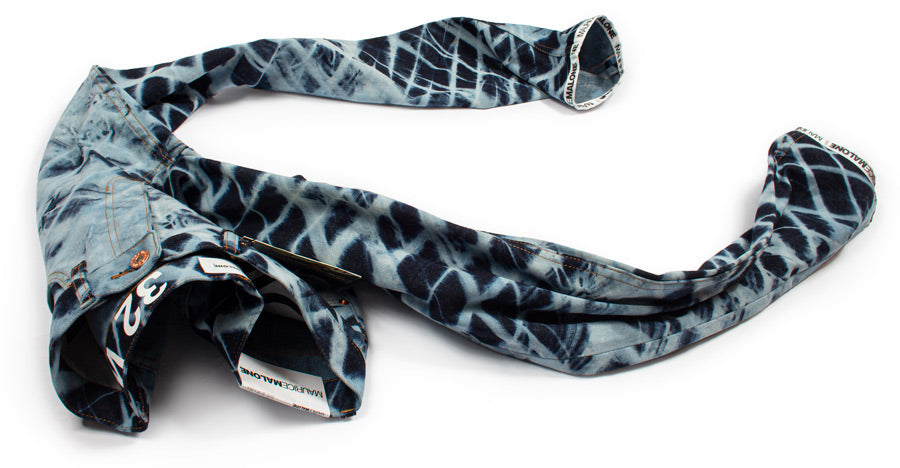
Rivet: Why was a collaboration with Arimatsu Shibori-Some a good match for you?
MM: The collaboration with Arimatsu Shibori-Some came about from a desire to introduce a new and creative technique to denim. In our first meeting, they showed me textured fabrics and scarves that I thought were really creative, but I needed time to think about how we could collaborate.
I saw shibori clothing before, but all looked elementary to what I witnessed Arimatsu could do. I thought if we were going to do something, it had to be very special. Arimatsu came in to collaborate with Williamsburg Garment Company because of the American made aspect. However, after some thought, I came to the conclusion that it would be better suited for the Maurice Malone brand because I had already been modernizing iconic styles for its relaunch. I thought, as an addition, the shibori fit perfect into what the brand is revered for – introducing new and unique ideas.
One of the things that struck me about shibori is the nearly identical repeating patterns made by hand. I thought it was great, but I feared the consumer might not appreciate the art if it looked like a print. So, I expressed that the key would be to come up with something beautiful but not repetitious.
Rivet: What gap do you aim to fill in the market with this collection?
MM: I believe there's a space for great denim in streetwear where craftmanship has all but disappeared and given way to new brands still learning their way around. I'm confident I can make denim more relevant in streetwear through creativity, quality, and well-disciplined design. I plan to be in a space, touching the very high-end consumer as well as those in the middle seeking the best product.
Rivet: Do you think streetwear's influence on luxury fashion has staying power?
MM: Early in my fashion career, Rock & Roll was the choice music genre of those in power, while Hip-Hop was frowned upon. Hip-Hop is currently the predominant choice of music in streetwear. The kids today are growing up on the influence of Hip-Hop, and because music is intrinsic to fashion and culture, I see no change in the near future.
Rivet: What is exciting you the most about denim in fashion?
MM: Denim allows for endless possibilities. We can manipulate the material in countless ways in countless permutations. Straight off the roll, denim is available in all types of weights and personalities. We can blend it with different yarns and materials, use it in its raw form, bleach it, dye it, destroy it, distress it, etc. This potential allows for untethered and boundless expression and exploration.
Rivet: Is the collaboration with Arimatsu Shibori-Some a long-term collaboration?
MM: Perhaps, it is hard to say for sure right now. We will see how the collection is received and work from there. For now, we are only at step one of the process. The textured shibori was most interesting to me, but we did not explore that this first time around. Who knows, we may wander into that.
Rivet: Will the MM line continue beyond the Arimatsu Shibori-Some collaboration? If so, how do you envision it evolving or standing separately from the WGC?
MM: The shibori is a special group from our collection. It fit in as a collaboration because the goal of the MM brand is to push creative bounds in fashion.
I also had some extraordinary tops designed for Holiday, but they didn't get completed in time for the show. I can't express how hurt I felt after finding out the styles wouldn't make the show. Now, I have to wait until the Fall 2020 selling season to reveal them. They were really original designs, despite being so simple in concept. The tops could have outshined the shibori during the show. Now, I fear other designers will come across my developments at the factories, and I'll see my ideas across multiple brands next year.
WGC is a different brand from MM. Although the websites product photography may share DNA, the two brands are very different.
WGC is basic and clean, meant to be a reliable source of quality denim essentials. MM focuses more on fashion and creative exploration, intended to evolve every season with fresh ideas and concepts. The two brands may have some cross-over customers, but a lot of WGC's consumer base wouldn't have an interest in the MM brand. It can too forward.
Rivet: What type of feedback did the line receive at Liberty?
MM: The shibori jeans received the most attention by far. The mass-market priced buyers loved the jeans but were intimidated by the price point. We are working on solutions to create a more affordable version of the jeans without compromising the original handmade versions. Overall, people were happy to see Maurice Malone is back.
Rivet: What type of retailers are you positioning the collection to?
MM: We intend to be at the accessibly priced product in luxury designer specialty stores and the higher price point in the mid-tier market. Maurice Malone is meant to be a high-quality option accessible for most fashion buyers. We want a wide and varied consumer base.
Rivet: How many pieces are in the collection? Describe the fits and washes.
MM: There are upwards of 40 styles in the Spring '20 collection, which includes tops. The men's jean fits comprise of a skinny, slim tapered, slim, and straight fits. For women's denim, relaxed, and slim-straight fits. There will be more options to come as we expand.
Rivet: Retail price range?
MM:
Basic twill based jeans start at $185
Selvage denim jeans start at $280
Artisan Crafted Shibori Jeans range from $890 to $1,120.00
T-shirts $48 to $95


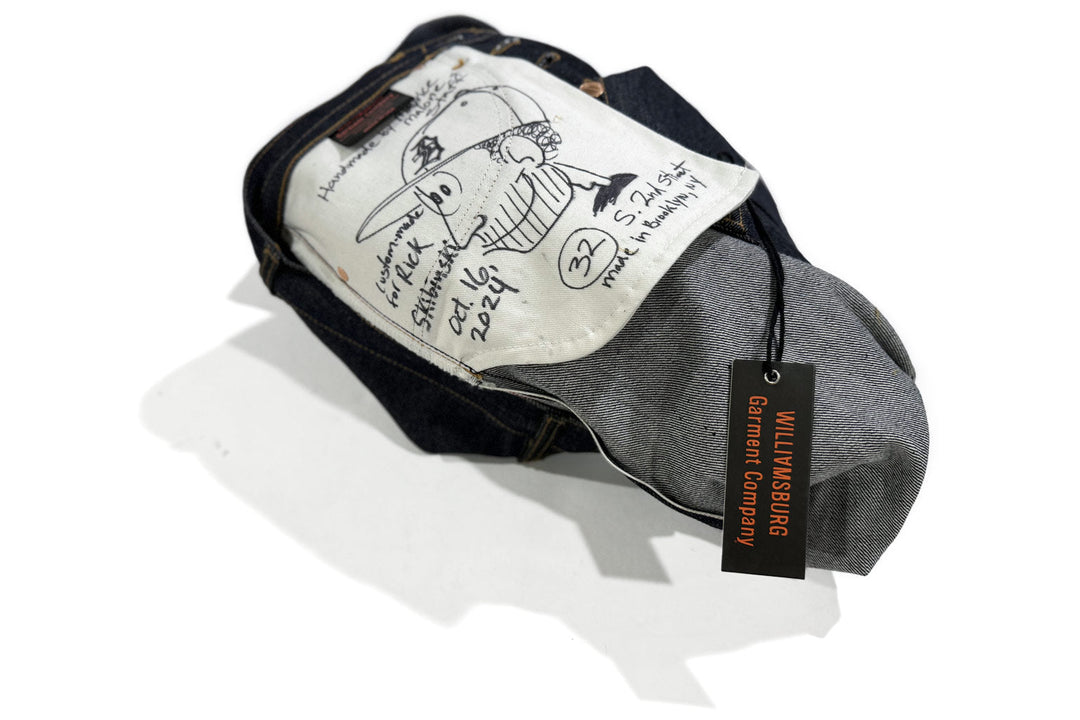
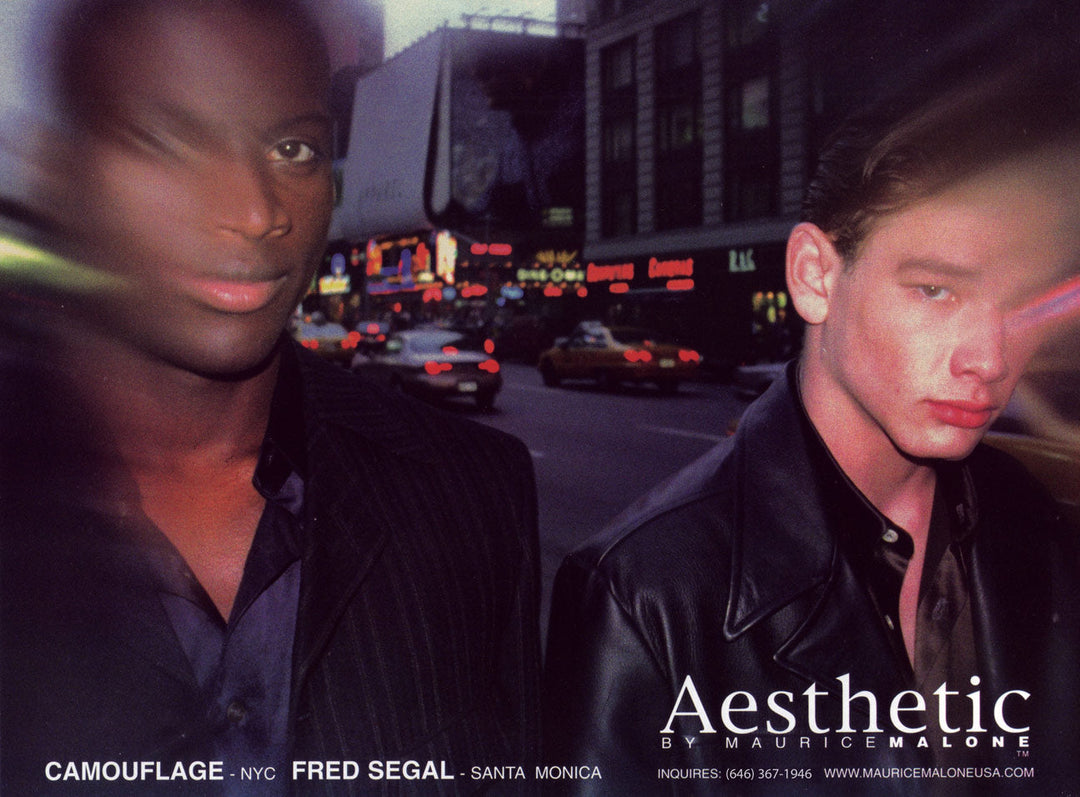
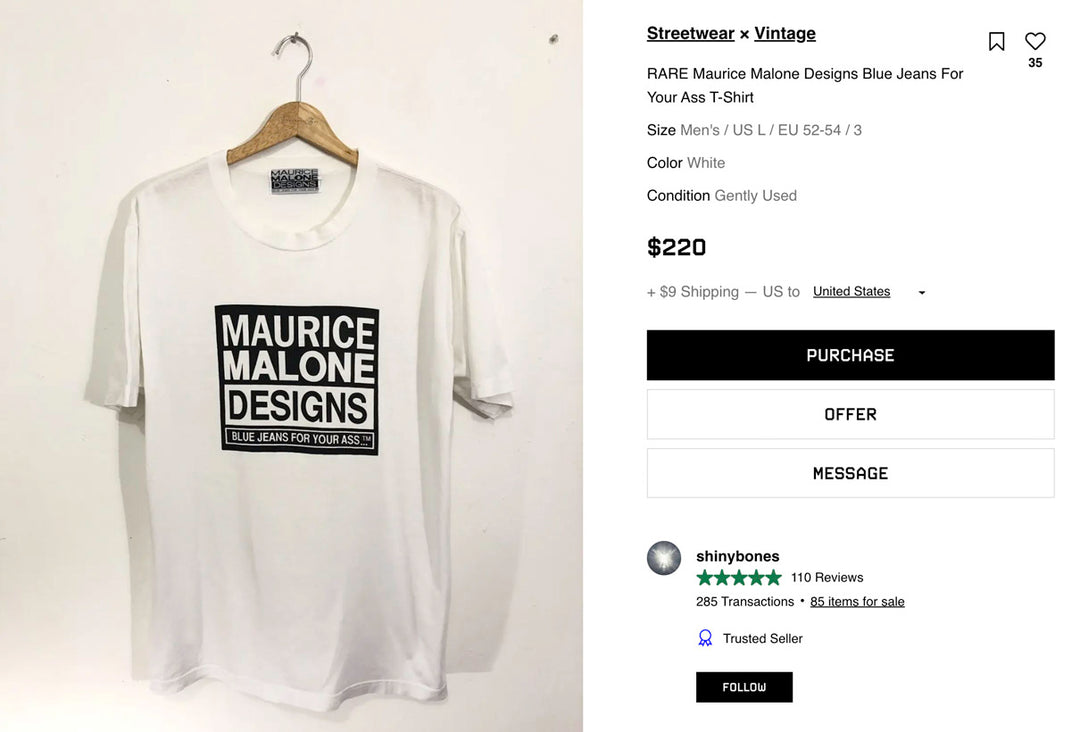
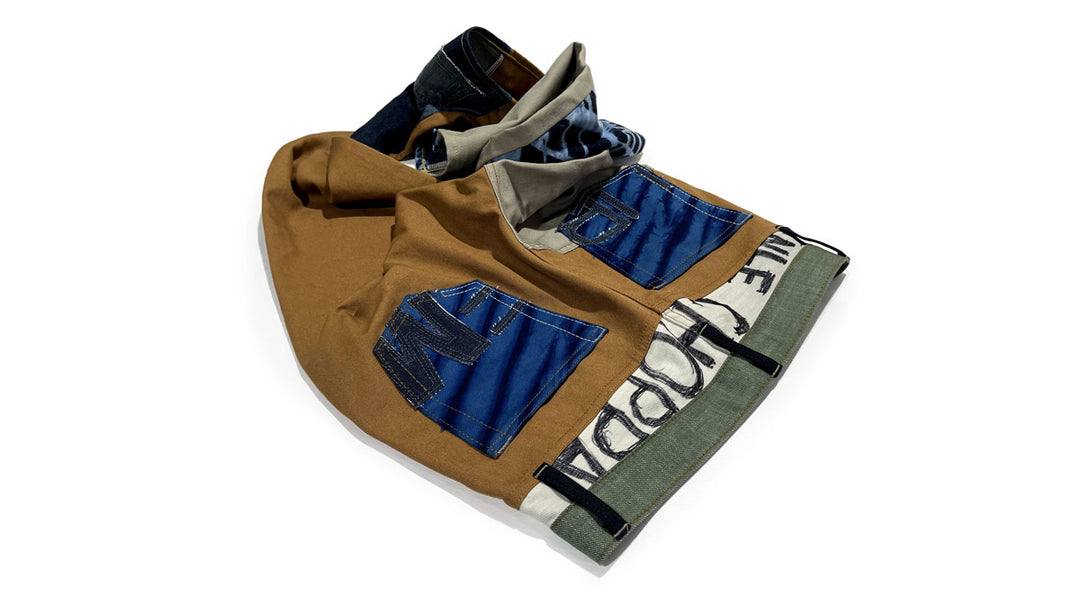
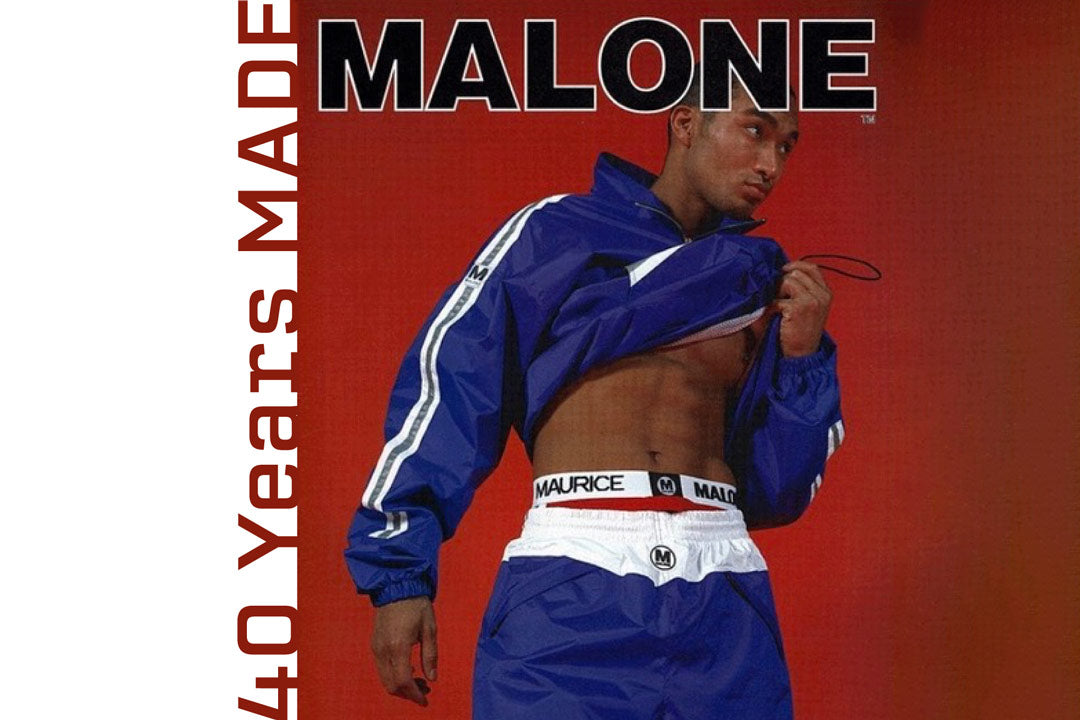
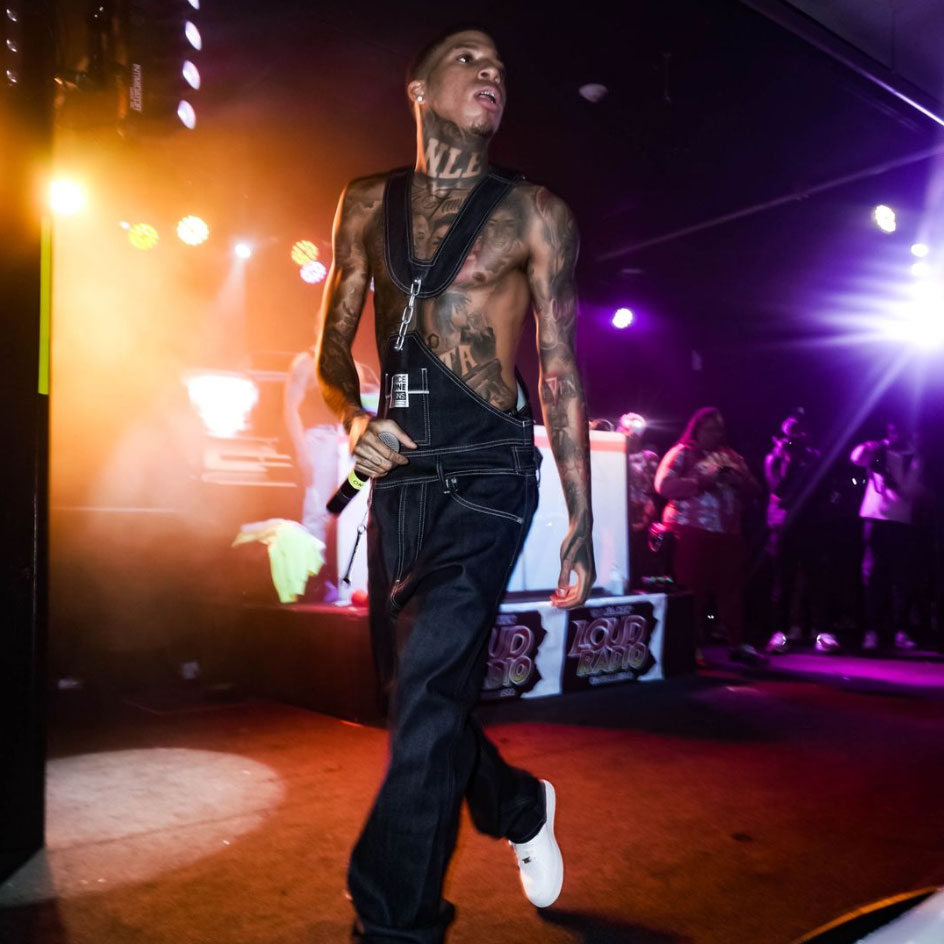
Leave a comment